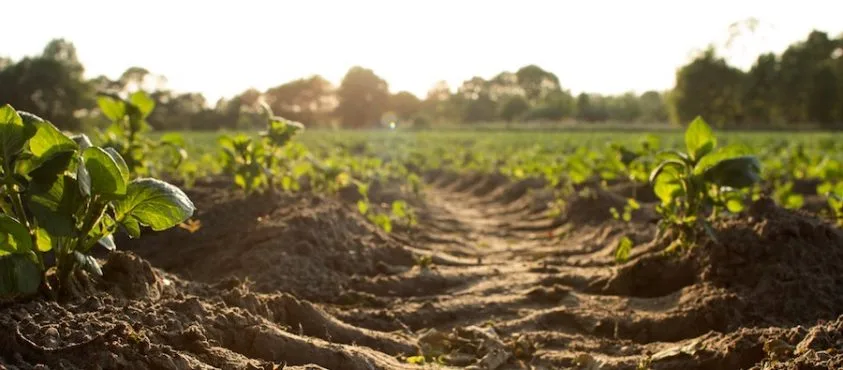Soil health is the foundation of sustainable agriculture. It is the bedrock of all agricultural practices, and it plays a crucial role in ensuring that crops are grown in a healthy and productive manner. Soil health is an important aspect of organic farming, as it focuses on the use of natural processes and inputs to maintain the health and fertility of the soil. In this article, we will discuss how soil health is crucial in organic farming and explore various practices that farmers can use to improve soil health, such as composting, crop rotation, cover cropping, and conservation tillage.
Soil Health and Organic Farming
Organic farming is a method of agriculture that relies on the use of natural processes and inputs, such as compost, cover crops, and natural fertilizers, to maintain the health and fertility of the soil. Soil health is crucial in organic farming, as healthy soil supports healthy plants, which in turn leads to healthy food. Organic farming also emphasizes the importance of biodiversity and the conservation of natural resources.
Compost
Composting is the process of breaking down organic material, such as food waste, leaves, and grass clippings, into a nutrient-rich soil amendment. Compost adds organic matter to the soil, which helps to improve soil structure, increase water retention, and promote the growth of beneficial microorganisms. Compost can be made on-site using a compost bin or tumbler, or it can be purchased from a local supplier.
Crop Rotation
Crop rotation is the practice of growing different crops in the same area in sequential seasons, and it helps to improve soil health by reducing soil-borne diseases and pests, improving soil structure, and replenishing soil nutrients. It also helps to maintain biodiversity and promote natural pest control.
Cover Crops
Cover crops are planted between crop cycles to help improve soil health. They help to prevent erosion, increase soil organic matter, and reduce weed growth. Cover crops can be used to provide a habitat for beneficial insects and microorganisms, and they can also help to fix nitrogen in the soil.
Conservation Tillage
Conservation tillage is the practice of reducing the number of times a field is tilled. This helps to reduce soil erosion, improve soil structure, and promote the growth of beneficial microorganisms. It also helps to reduce the amount of fossil fuels used in farming and reduce greenhouse gas emissions.
Integrated Pest Management
Integrated pest management is a holistic approach to pest management that uses a combination of natural and chemical methods to control pests. This approach focuses on the prevention of pest problems and the use of natural predators, such as ladybugs and lacewings, to control pest populations.
Regenerative Agriculture
Regenerative agriculture is a holistic approach to farming that focuses on building soil health, promoting biodiversity, and conserving natural resources. It emphasizes the use of natural processes and inputs to promote healthy soil and plant growth. This approach to farming also helps to reduce greenhouse gas emissions and mitigate climate change.
No-Till Farming
No-till farming is the practice of planting crops without tilling the soil. This helps to reduce soil erosion, improve soil structure, and promote the growth of beneficial microorganisms. No-till farming also helps to reduce the amount of fossil fuels used in farming and reduce greenhouse gas emissions.
Permaculture
Permaculture is a method of agriculture that emphasizes the use of natural processes and inputs to create a self-sustaining ecosystem. It focuses on building healthy soil, promoting biodiversity, and conserving natural resources. Permaculture can be used to create sustainable and productive food systems that are resilient to climate change.
Biodynamic Farming
Biodynamic farming is a holistic approach to agriculture that emphasizes the use of natural inputs, such as compost and cover crops, to promote soil health

1 thought on “Soil Health: The Foundation of Sustainable Agriculture”